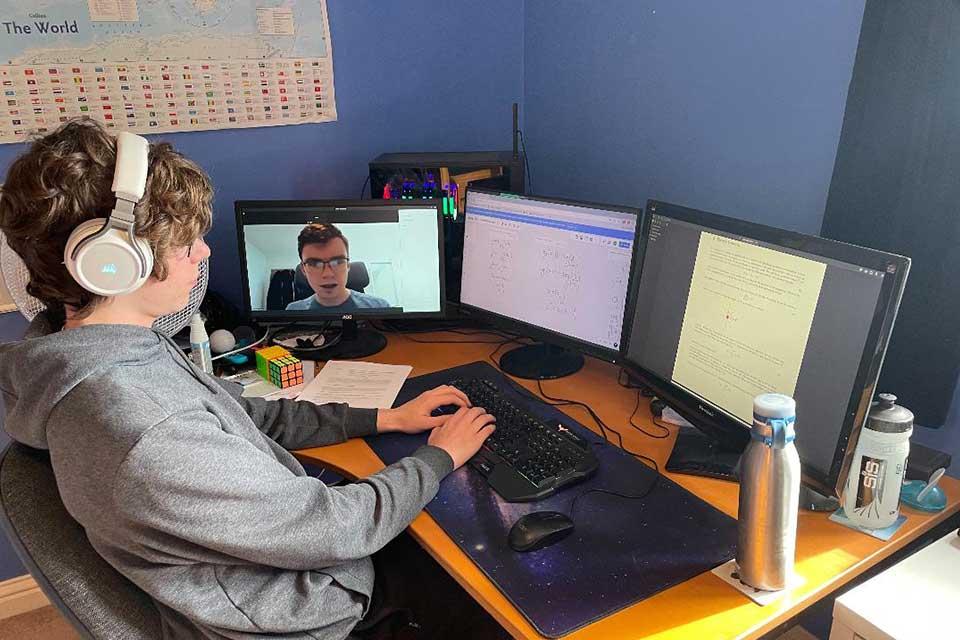A unique nationwide outreach initiative for sixth formers at state schools across the country has completed a successful year-long pilot and received funding to grow and run for another year. The Comprehensive Oxford Mathematics and Physics Online School (COMPOS) was devised and founded by Professor Alexander Lvovsky from the Department of Physics at the University of Oxford and helps enthusiastic secondary school students to systematically learn mathematics and physics at a deep level. Generous funding from Mathematics Education for Social Mobility and Excellence (MESME) means that students can benefit from COMPOS for free.
Students receive a homework assignment every 3-4 weeks that includes reading material, links to online lectures and a problem set. The work is marked by their tutor – typically an undergraduate from the Department of Physics – who also gives them weekly 1-hour online tutorials in small groups of five or six students. The COMPOS curriculum largely follows the school syllabus, but presents the material at a higher and deeper level, concentrating on problem-solving skills. Because all COMPOS activities are online, all that a student needs to participate is Internet connection.
Problem solving practice
‘In STEM, it is essential that you work systematically, learning new material and practicing problem solving on a regular basis,’ explains Vladimir Chernov, the programme’s Academic Coordinator. ‘Many universities have outreach programmes, but these are mostly one-time events, such as lectures, shows or science fairs. COMPOS is special in that a student has to work throughout the academic year, studying a variety of subjects, which will prepare them for higher education and eventually a career in physics and mathematics.’
The pilot phase of the programme started in the autumn of 2021 and involves 100 participants from Year 12. Thanks to the latest additional funding from MESME, Professor Lvovsky is planning to expand the programme to 300 students covering both years 12 and 13. In the longer term, the team would like to offer COMPOS to younger students and other subject areas such as those studying mathematics, chemistry and computer science.
‘COMPOS has allowed me to explore higher level physics and maths concepts than those afforded to me by A-Level education. Although it can sometimes get tricky, you can always get support through the webinars and tutorials. The webinar/tutorial/problem set dynamic has allowed me to find out what it is like to do physics or maths at a university. It has consistently been a highlight of the past year and I look forward to continuing it into Year 13.’
Josh Hughes, COMPOS participant
Professor Lvovsky concludes: ‘We are already starting to see real results from COMPOS and it is clear to see that the programme has enormous potential. One of its key tenets is its accessibility. Any student who loves science and who has a natural sense of curiosity, regardless of their background, can pursue their passion and find likeminded people through COMPOS – and that’s how it should be.’

